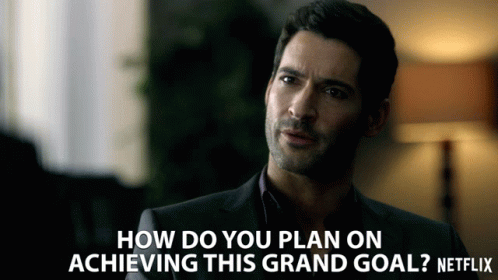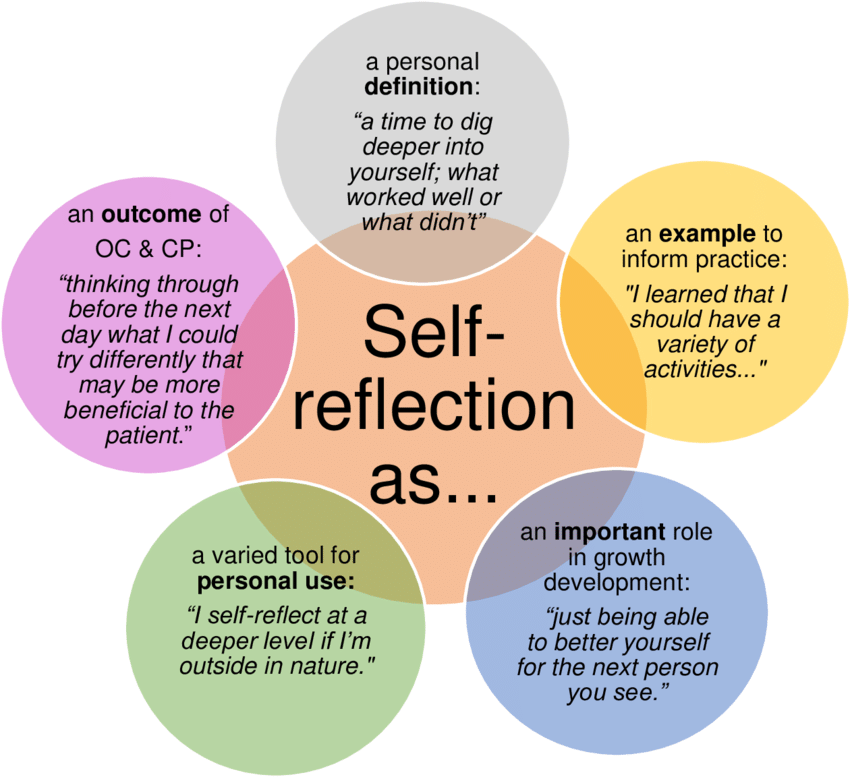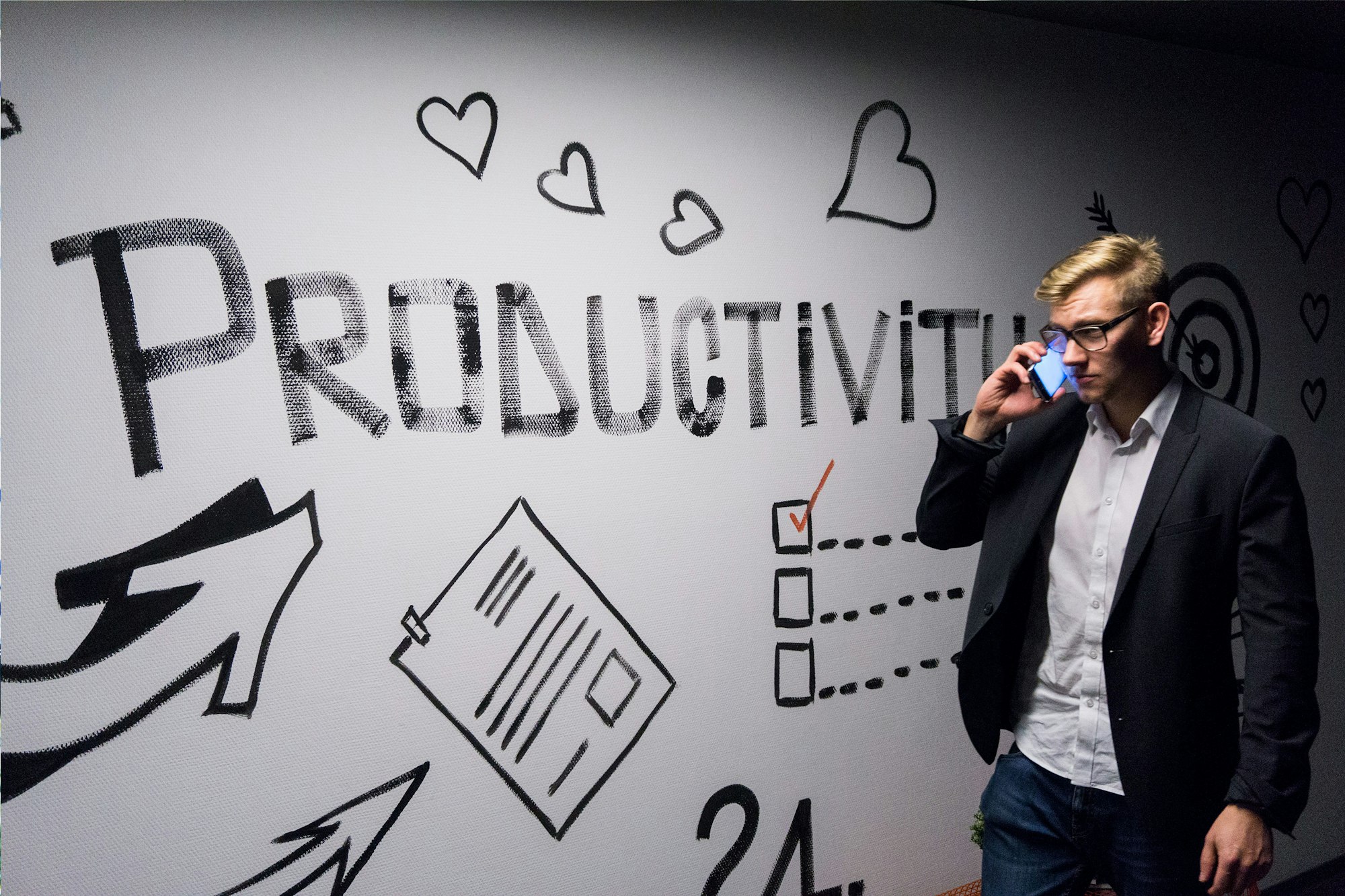10 Mind-Blowing Personal Development Techniques for a Balanced Life
Discover 10 mind-blowing personal development techniques for achieving a balanced life and improving happiness, confidence, and productivity.

Welcome to the exciting world of personal development!
If you're looking to enhance your life, achieve your goals, and find a sense of balance, you've come to the right place. In this article, we will explore 10 mind-blowing personal development techniques that can transform your life for the better.
Why is personal development important?
Well, personal development is all about investing in yourself and continuously evolving to become the best version of yourself. It empowers you to take control of your life, improve your skills, and nurture positive habits.
By focusing on personal growth, you can enhance your relationships, career, health, and overall well-being.
What can you expect from this article?
We will dive deep into a variety of personal development techniques that cover different aspects of life. From setting meaningful goals to managing your time effectively and building healthy relationships, we have got you covered.
So, let's embark on this transformative journey together and unlock your potential for a balanced and fulfilling life.
Get ready to discover some valuable strategies and insights that will empower you to take charge of your personal growth! Are you excited? Let's get started!
Setting Meaningful Goals
Setting meaningful goals is a crucial step in personal development. It gives you direction and purpose in life, and helps you stay motivated and focused.
Here are some techniques to help you set and achieve meaningful goals:
Identify Your Values and Priorities
Before setting goals, it is essential to understand your values and priorities. Take some time to reflect on what truly matters to you in different areas of your life, such as career, relationships, health, and personal growth.
Think about what brings you joy and fulfillment. This will help you align your goals with your core values and ensure that they are truly meaningful to you.
SMART Goal Setting
SMART stands for Specific, Measurable, Achievable, Relevant, and Time-bound. This framework helps you create goals that are clear, realistic, and actionable. When setting goals, make sure they are:
- Specific:
Clearly define what you want to achieve. Instead of saying "I want to be healthier," specify "I want to lose 10 pounds and improve my fitness level." - Measurable:
Set quantitative targets that can be tracked. This allows you to measure your progress and stay motivated. For example, "I want to save $5,000 by the end of the year." - Achievable:
Ensure that your goals are realistic and attainable. Setting challenging goals is important, but they should still be within your reach. If the goals are too far-fetched, you may become discouraged. - Relevant:
Your goals should be aligned with your values, priorities, and overall life vision. They should contribute to your personal growth and well-being. - Time-bound:
Set a deadline for achieving your goals. This creates a sense of urgency and helps you stay focused. Break down long-term goals into shorter-term milestones or action steps.
Breaking Goals into Actionable Steps
Once you have set your goals, break them down into smaller, actionable steps. This makes them more manageable and increases the likelihood of success. Here's how you can do it:
- Identify the key actions:
Break down your goal into specific actions that need to be taken. For example, if your goal is to start a business, your key actions might include market research, writing a business plan, and securing funding. - Prioritize the actions:
Determine which actions are most important and should be done first. Focus on these high-priority tasks to make progress. - Create a timeline:
Assign deadlines to each action step. This gives you a clear plan and helps you stay accountable. - Track your progress:
Regularly review your progress and make adjustments if needed. Celebrate your achievements along the way to stay motivated.
Setting meaningful goals is a powerful tool for personal development. It allows you to create a roadmap for your life and work towards a more fulfilling and balanced future.
By following these techniques, you can set goals that align with your values, are realistic, and are broken down into actionable steps, increasing your chances of success. So go ahead, set those goals and embark on your journey of personal growth!

Building a Growth Mindset
In today's constantly evolving world, having a growth mindset is crucial for personal development and success. A growth mindset is the belief that our abilities and intelligence can be developed through dedication, effort, and resilience.
It allows us to embrace challenges, learn from failures, and continuously improve ourselves. Here are some practical techniques to help you build a growth mindset:
Embracing Challenges and Learning from Failures
- Step out of your comfort zone:
Seek out new challenges and opportunities that push you beyond your limits. Embracing challenges helps you develop new skills and gain confidence in your abilities. - View failure as a learning opportunity:
Instead of seeing failures as setbacks, see them as valuable learning experiences. Analyze what went wrong, make adjustments, and try again. Remember, failure is not a reflection of your worth; it is an opportunity for growth.
Cultivating Curiosity and Open-Mindedness
- Stay curious:
Foster a sense of curiosity about the world around you. Ask questions, seek out new knowledge, and explore different perspectives. Curiosity fuels learning and allows for personal growth. - Challenge your own beliefs:
Be open to different ideas and viewpoints. Challenge your own biases and preconceived notions. This openness allows for personal growth and helps you see things from different angles.
Developing Resilience and Optimism
- Practice resilience:
Develop the ability to bounce back from setbacks and handle adversity. Resilience helps you stay motivated and focused on your goals, even in the face of challenges. - Cultivate optimism:
Cultivate a positive mindset and focus on the possibilities and opportunities that lie ahead. Optimism helps you maintain a hopeful outlook, even during difficult times.
Remember, building a growth mindset takes time and effort. It requires a willingness to step out of your comfort zone, embrace challenges, and learn from failures.
By cultivating curiosity, open-mindedness, resilience, and optimism, you can develop a growth mindset that will propel you towards personal growth and success.
Practicing Self-Reflection
Self-reflection is an essential practice for personal development and growth. It involves taking the time to look within ourselves, analyze our thoughts and actions, and make conscious decisions about our behaviors and choices.
Self-reflection helps us gain insight into our strengths, weaknesses, and areas for improvement, allowing us to make positive changes in our lives. Here are some techniques to help you practice self-reflection effectively:
Journaling and Mindfulness
- Journaling:
Writing down your thoughts and feelings in a journal can be a powerful tool for self-reflection. It allows you to express yourself freely and reflect on your experiences and emotions.
Set aside some time each day to write in your journal, whether it's in the morning to set intentions for the day or in the evening to reflect on the events of the day. - Mindfulness:
Practicing mindfulness involves being present in the moment and non-judgmentally observing your thoughts and feelings. It can help you become more aware of your inner experiences and develop a deeper understanding of yourself.
Try incorporating mindfulness into your daily routine by engaging in activities mindfully, such as eating, walking, or even washing dishes.

Analyzing Strengths and Weaknesses
- Strengths:
Take the time to identify your strengths - those qualities and abilities that make you unique and that you excel in.
Reflect on how you can leverage these strengths to achieve your goals and make a positive impact in various areas of your life. - Weaknesses:
Self-reflection also involves acknowledging your weaknesses and areas where you need improvement. Take an honest look at your weaknesses and identify ways to address them.
This could involve seeking further education or training, seeking support from others, or setting specific goals to overcome these weaknesses.
Seeking Feedback and Self-Evaluation
- Feedback:
Seek feedback from trusted individuals in your life, such as friends, mentors, or colleagues. Their perspectives can provide valuable insights and highlight blind spots that you may have missed during your self-reflection.
Be open to receiving constructive criticism and use it as an opportunity for growth. - Self-Evaluation:
Regularly evaluate your progress towards your goals and reflect on your actions and outcomes.
Ask yourself questions such as: "What worked well?" "What could I have done differently?" "What have I learned from this experience?" This self-evaluation helps to refine your approach and make adjustments for future growth.
Self-reflection is a continuous process. By incorporating these techniques into your routine, you can gain a deeper understanding of yourself, make more informed decisions, and strive for personal growth and fulfillment.
So take some time for self-reflection, and discover the insights and opportunities for growth that await you.

Effective Time Management
Time is a precious resource, and managing it effectively is essential for achieving personal and professional success. When you have good time management skills, you are able to prioritize tasks, stay focused, and accomplish more in less time. Here are some techniques to help you improve your time management skills:
Prioritizing Tasks and Avoiding Procrastination
- Make a to-do list:
Start your day by creating a list of tasks you need to accomplish. Prioritize them based on urgency and importance. - Eliminate distractions:
Minimize distractions such as social media notifications, emails, and unnecessary interruptions. Set specific time blocks for checking emails and social media. - Break tasks into smaller steps:
Often, tasks can seem overwhelming, leading to procrastination. Break down tasks into smaller, manageable steps to make them more achievable.
Creating Daily and Weekly Schedules
- Time blocking:
Allocate specific time slots for different activities throughout the day. Set aside blocks of time for focused work, meetings, breaks, and personal activities. - Batch similar tasks:
Group similar tasks together to streamline your workflow. For example, schedule a specific time each day for responding to emails or making phone calls. - Plan for flexibility:
Leave buffer time between tasks to account for unexpected delays or interruptions. This allows for a more realistic schedule.
Using Time-Tracking Techniques
- Track your time:
Use time-tracking tools or apps to monitor how you spend your time. This will help you identify time-wasting activities and areas for improvement. - Set deadlines:
Assign specific deadlines to tasks to stay accountable and avoid procrastination. Break larger projects into smaller milestones with their own deadlines. - Review and analyze:
Regularly review how you are using your time. Identify patterns and areas where you can make adjustments to be more efficient.
Remember, effective time management is not just about doing more tasks in less time. It's about prioritizing your time on the things that truly matter and align with your goals and values.
By implementing these techniques, you can take control of your time and achieve a better work-life balance. So, start managing your time effectively today and unlock the doors to increased productivity and success!
Increasing Productivity and Focus
Do you ever find yourself struggling with productivity and focus? In today's fast-paced world, staying focused and getting things done can be a challenge. But fear not!
There are techniques and strategies that you can implement to boost your productivity and improve your ability to stay focused.
Let's dive in and explore some mind-blowing personal development techniques that can help you increase productivity and focus in your daily life.
Applying the Pomodoro Technique
The Pomodoro Technique is a time management method developed by Francesco Cirillo in the late 1980s. It is a simple yet effective technique that can help you work more efficiently and maintain focus throughout the day. Here's how it works:
- Choose a task that you want to work on.
- Set a timer for 25 minutes, known as a "Pomodoro".
- Work on the task with full concentration until the timer goes off.
- Take a short break of 5 minutes.
- Repeat the process for four Pomodoros, and then take a longer break of 15-30 minutes.
By breaking your work into small, focused intervals, the Pomodoro Technique helps you avoid burnout and maintain high levels of productivity.
It also helps you become more aware of how you're spending your time and encourages you to eliminate distractions.
Eliminating Distractions and Time Wasters
Distractions can significantly hinder productivity and focus. Whether it's social media, email notifications, or chatty colleagues, it's crucial to identify and eliminate these distractions to stay on track.
Here are a few tips:
- Manage your digital distractions:
Limit your time on social media, turn off notifications, or use website blockers to prevent access to time-wasting websites during work hours. - Create a dedicated workspace:
Designate a specific area for work where you can minimize distractions and focus solely on the task at hand. - Establish boundaries:
Communicate your availability to colleagues, friends, and family members, and let them know when you need uninterrupted time to work.
Utilizing Productivity Tools and Apps
In today's digital age, there are numerous productivity tools and apps available to help you stay organized, manage your time effectively, and increase your productivity. Here are a few popular ones:
- Todoist:
A task management app that helps you create and manage your to-do lists, set reminders, and prioritize tasks. - Trello:
A project management tool that uses boards, lists, and cards to help you visually organize and track your work. - RescueTime:
A time-tracking app that monitors your computer and phone usage, giving you insights into how you spend your time and helping you identify areas for improvement. - Focus@Will:
A productivity app that offers curated music playlists designed to enhance focus and concentration.
Remember, the key to increasing productivity and focus is finding what works best for you. Experiment with different techniques and tools to discover what boosts your productivity and helps you stay focused. And most importantly, be consistent in implementing these strategies in your daily life.
Before you know it, you'll be amazed at how much you can accomplish and how focused you can be!

Building Healthy Habits
When it comes to personal development, one of the key aspects is building healthy habits. These habits not only contribute to your physical well-being but also play a significant role in your mental and emotional health.
Establishing and maintaining healthy habits can have a profound effect on your overall well-being and lead to a more balanced and fulfilling life. Here are some effective techniques to help you build healthy habits:
1. Establishing a Morning Routine
Having a morning routine sets the tone for the rest of your day. It helps you start your day on a positive and productive note. Consider incorporating the following activities into your morning routine:
- Meditation:
Spending a few minutes practicing mindfulness and meditation can help calm your mind, reduce stress, and improve focus for the day ahead. - Exercise:
Engaging in physical activity in the morning boosts your energy levels, improves your mood, and kickstarts your metabolism. Whether it's a brisk walk, yoga session, or a full workout, find an activity that works for you and stick with it. - Healthy Breakfast:
Fuel your body with a nutritious breakfast that includes protein, complex carbohydrates, and healthy fats. This will provide you with sustained energy throughout the day.
2. Incorporating Exercise and Physical Activity
Regular exercise is crucial for maintaining a healthy body and mind. Physical activity not only helps you stay fit but also has numerous benefits, including:
- Improved Mood:
Exercise releases endorphins, which are known as "feel-good" hormones. These hormones help reduce stress, anxiety, and depression, and improve your overall mood. - Increased Energy Levels:
Engaging in regular exercise boosts your energy levels, making you more productive and alert throughout the day. - Enhanced Cognitive Function:
Exercise improves blood flow to the brain, which enhances cognitive function, memory, and concentration. - Better Sleep:
Regular exercise promotes better sleep by reducing insomnia and improving sleep quality.
3. Practicing Mindful Eating
Developing a healthy relationship with food is essential for overall well-being. Mindful eating involves being present and fully aware of your eating habits. Here are some tips for practicing mindful eating:
- Listen to Your Body:
Pay attention to your body's hunger and fullness cues. Eat when you're hungry and stop when you're comfortably satisfied. - Eat Mindfully:
Slow down and savor each bite. Take the time to appreciate the flavors, textures, and aromas of your food. - Choose Nutrient-Dense Foods:
Opt for whole, unprocessed foods that are rich in vitamins, minerals, and antioxidants. These foods nourish your body and support optimal health. - Stay Hydrated:
Drink plenty of water throughout the day to stay hydrated and support optimal bodily functions.
Building healthy habits takes time and consistency. Remember to be patient with yourself and celebrate small victories along the way.
With dedication and perseverance, you can develop a solid foundation of healthy habits that will positively impact your life in the long run.
"Your habits determine your future. Create healthy habits that will lead you to a life of success and fulfillment."
Stress Management Techniques
Stress is something that affects all of us at some point in our lives. Whether it's work-related stress, personal issues, or simply the pressures of daily life, finding effective ways to manage and reduce stress is essential for our overall well-being.
In this section, we'll explore some mind-blowing techniques to help you manage stress and lead a more balanced life.
Deep Breathing and Meditation
- Deep breathing exercises and meditation are powerful techniques to calm the mind and reduce stress.
- Taking deep, slow breaths can activate the body's relaxation response and lower stress hormones.
- Meditation can help you focus on the present moment and let go of worries and anxieties.
- Try incorporating deep breathing or short meditation sessions into your daily routine, even if it's just for a few minutes.
Engaging in Relaxation Techniques
- Engaging in relaxation techniques can help you unwind and reduce stress.
- Practices such as progressive muscle relaxation, guided imagery, or self-massage can alleviate tension in the body and promote a sense of relaxation.
- Find the relaxation technique that works best for you and make it a regular part of your routine.
Setting Boundaries and Saying No
- One common cause of stress is overcommitment and an inability to say no.
- Learning to set healthy boundaries and say no when necessary is crucial for managing stress and maintaining your well-being.
- Remember, it's okay to prioritize your own needs and limit your commitments to what you can handle.
"The greatest weapon against stress is our ability to choose one thought over another." - William James
"In times of great stress or adversity, it's always best to keep busy, to plow your anger and your energy into something positive." - Lee Iacocca
Remember, managing stress is not about eliminating it completely but rather finding healthy ways to cope and bounce back. Experiment with different stress management techniques and find what works best for you.
By incorporating these techniques into your daily life, you can take control of your stress levels and lead a more balanced and fulfilling life.
Continuous Learning and Personal Growth
In today's fast-paced and ever-changing world, continuous learning and personal growth are key to staying relevant and thriving. Engaging in ongoing learning experiences and seeking opportunities for personal growth not only expands your knowledge and skills but also enhances your overall well-being.
Whether it's reading books, attending workshops, or exploring new hobbies, there are countless ways to foster continuous learning and personal growth. In this section, I will share some effective techniques to help you on your journey of self-improvement.
Reading Books and Listening to Podcasts
One of the best ways to engage in continuous learning is by devouring books and podcasts that interest you. Whether you prefer printed books or the convenience of audiobooks, reading and listening to podcasts expose you to new perspectives, ideas, and insights. Choose books and podcasts that align with your interests or explore new subjects that pique your curiosity. Reading and listening to experts in various fields not only expands your knowledge but also stimulates your mind and keeps you intellectually engaged.
Taking Courses and Attending Workshops
Another great way to foster personal growth is by taking courses and attending workshops. These structured learning experiences provide you with the opportunity to gain new skills and knowledge in a more interactive and hands-on manner. Look for courses and workshops that align with your areas of interest or choose topics that you've always wanted to explore. Whether it's a local workshop or an online course, investing in your personal growth through formal learning experiences can lead to new opportunities and personal fulfillment.
Engaging in New Hobbies and Skills
Engaging in new hobbies or acquiring new skills is not only fun but also a great way to continuously grow and develop. Explore activities that challenge you and push you out of your comfort zone.
Whether it's learning to play a musical instrument, taking up a new sport, or trying your hand at painting, engaging in activities that bring you joy and fulfillment can have a profound impact on your personal growth.
These endeavors not only enhance your creativity and cognitive abilities but also boost your self-confidence and provide a sense of achievement.
Remember, personal growth is a lifelong journey, and each step you take towards continuous learning and self-improvement brings you closer to living a more fulfilled and balanced life.
"The only person you are destined to become is the person you decide to be." - Ralph Waldo Emerson
Building Healthy Relationships
Building healthy relationships is an essential aspect of personal development. Good relationships can bring us happiness, fulfillment, and support, while toxic relationships can drain our energy and hinder our growth.
Whether it's with friends, family, or colleagues, fostering healthy relationships can greatly contribute to a balanced and fulfilling life. Here are some key techniques to help you build and maintain healthy relationships:
Effective Communication Skills
Communication is the foundation of any relationship. Effective communication involves expressing oneself clearly and actively listening to others. Here are some tips to improve your communication skills:
- Use "I" statements:
When expressing your thoughts or feelings, use "I" statements instead of "you" statements. For example, say "I feel hurt when..." instead of "You always make me feel..." - Practice active listening:
Pay close attention to what the other person is saying and provide feedback to show that you understand. Avoid interrupting or making assumptions. - Be mindful of non-verbal cues:
Remember that communication is not just about words. Pay attention to non-verbal cues such as body language and tone of voice, as they can convey emotions and intentions.
Active Listening and Empathy
Active listening goes hand-in-hand with effective communication. By actively listening, you show that you value and respect the other person's thoughts and emotions.
Additionally, empathy allows you to understand and share the feelings of others. Here's how to enhance active listening and empathy:
- Give your full attention:
Be present in the conversation and avoid distractions. Put away your phone or any other distractions that can hinder your ability to listen actively. - Reflect and validate:
Repeat or summarize what the other person has said to ensure you understood them correctly. Validate their emotions by acknowledging their feelings. - Put yourself in their shoes:
Try to understand their perspective and emotions. Reflect on how you would feel in their situation to develop empathy.
Setting Boundaries and Maintaining Respect
Setting boundaries is crucial for maintaining healthy relationships. It helps define what is acceptable and unacceptable behavior for both parties involved. Additionally, maintaining respect is essential to create a safe and supportive environment. Here are some tips for setting boundaries and maintaining respect:
- Know your limits:
Be aware of your own needs and values. Clearly communicate your boundaries to others and be respectful when discussing and enforcing them. - Respect others' boundaries:
Similarly, respect the boundaries of others. Pay attention to their verbal and non-verbal cues and act accordingly. - Treat others with kindness:
Show kindness and respect to others, even during disagreements or conflicts. Avoid attacking or belittling others and instead focus on finding solutions and fostering understanding.
Building healthy relationships takes effort and continuous growth, but the rewards are immeasurable.
By practicing effective communication skills, active listening, empathy, setting boundaries, and maintaining respect, you can cultivate meaningful and fulfilling relationships that positively impact your personal development journey.
"The quality of your life is determined by the quality of your relationships." - Tony Robbins
Conclusion
Congratulations! You've made it to the end of our journey through 10 mind-blowing personal development techniques for a balanced life.
By implementing these strategies, you can unlock your full potential, cultivate a growth mindset, and create a life that brings you joy and fulfillment.
Remember, personal development is a lifelong journey, and it's okay to start small. Incorporate one technique at a time and gradually build upon your progress. With consistency and dedication, you will experience incredible transformation and growth.
Here's a quick recap of the techniques we discussed:
- Setting Meaningful Goals:
Identify your values, set SMART goals, and break them down into actionable steps. - Building a Growth Mindset:
Embrace challenges, cultivate curiosity, and develop resilience and optimism. - Practicing Self-Reflection:
Journaling, analyzing strengths and weaknesses, and seeking feedback are powerful tools for self-improvement. - Effective Time Management:
Prioritize tasks, create schedules, and use time-tracking techniques to make the most of your days. - Increasing Productivity and Focus:
Apply the Pomodoro Technique, eliminate distractions, and utilize productivity tools. - Building Healthy Habits:
Establish a morning routine, incorporate exercise, and practice mindful eating for a balanced lifestyle. - Stress Management Techniques:
Deep breathing, meditation, relaxation techniques, and setting boundaries can help you manage stress effectively. - Continuous Learning and Personal Growth:
Read books, listen to podcasts, take courses, and engage in new hobbies for ongoing personal growth. - Building Healthy Relationships:
Effective communication, active listening, empathy, and setting boundaries are key to creating fulfilling connections.
Remember, personal development is a journey that requires consistency and dedication. By implementing these techniques, you can create a balanced and fulfilling life.
Remember, personal development is not a race or a competition. Each person's journey is unique, and it's important to focus on your own progress rather than compare yourself to others.
Celebrate your successes, learn from your failures, and keep moving forward.
So go ahead, start implementing these techniques into your life, and watch as you transform into the best version of yourself. Remember, the power to create the life you desire lies within you. You have the ability to achieve anything you set your mind to.
"The only limit to our realization of tomorrow will be our doubts of today." - Franklin D. Roosevelt
Frequently Asked Questions
- What are some effective personal development techniques?
Some effective personal development techniques include setting goals, practicing self-reflection, developing a growth mindset, adopting a positive attitude, practicing mindfulness, prioritizing self-care, seeking continuous learning, building strong relationships, embracing failure, and taking calculated risks. - How can personal development techniques help achieve a balanced life?
Personal development techniques help achieve a balanced life by enabling individuals to identify their priorities, set realistic goals, manage time effectively, reduce stress, promote self-awareness, improve decision-making skills, enhance personal relationships, and develop a positive outlook towards life. - What is the importance of personal development?
Personal development is important as it helps individuals grow, learn new skills, overcome challenges, and make positive changes in various aspects of their life such as career, relationships, health, and mindset. It empowers individuals to reach their full potential and lead a fulfilling life. - How often should personal development techniques be practiced?
Personal development techniques should be practiced consistently and integrated into daily routines. Allocating dedicated time for self-improvement activities, such as reading, journaling, and learning, on a regular basis helps maintain momentum and ensure continuous personal growth. - Are personal development techniques applicable to everyone?
Yes, personal development techniques are applicable to everyone, regardless of age, occupation, or background. Each individual can tailor these techniques to their specific needs and goals to achieve personal growth and create a more balanced and fulfilling life.
